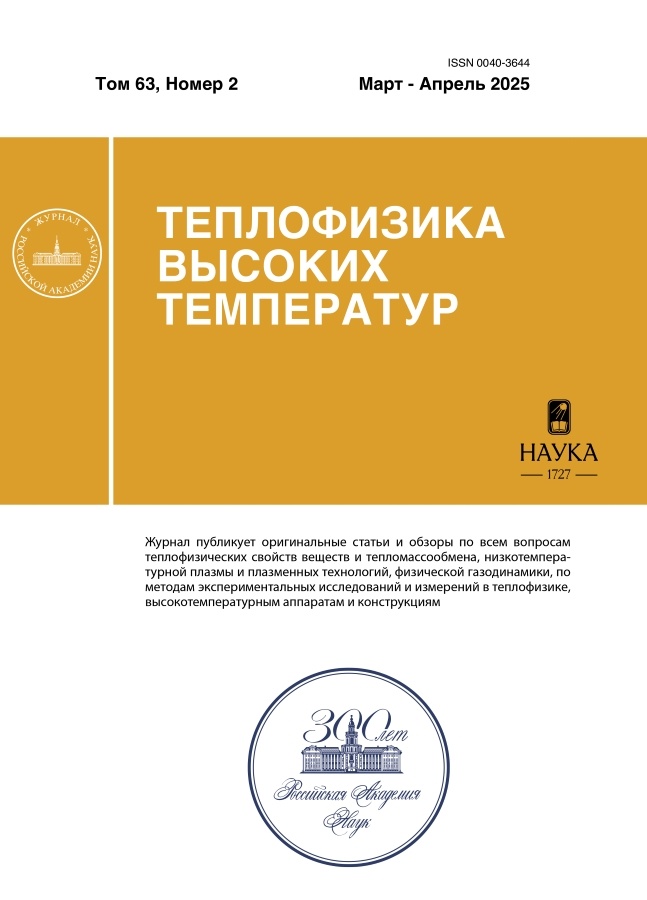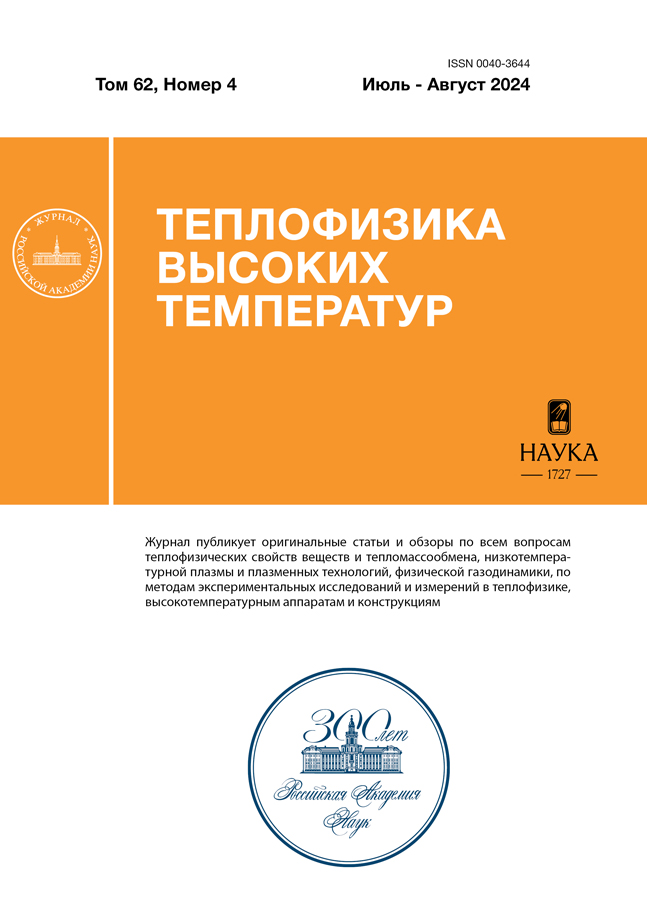Современное состояние углеродной энергетики
- Авторы: Смирнов Б.М.1
-
Учреждения:
- Объединенный институт высоких температур РАН
- Выпуск: Том 62, № 4 (2024)
- Страницы: 610-624
- Раздел: Новая энергетика и современные технологии
- URL: https://ruspoj.com/0040-3644/article/view/653000
- DOI: https://doi.org/10.31857/S0040364424040147
- ID: 653000
Цитировать
Полный текст
Аннотация
На основе данных научных центров и результатов долгосрочных научных проектов проанализированы тепловое состояние Земли и глобальные процессы, протекающие в атмосфере и на поверхности. Анализ выполнен в форме числовых оценок, и на их основе построена физическая картина глобальных процессов с участием углерода и углекислого газа. Показано, что парниковый эффект за счет антропогенного углекислого газа, инжектируемого в атмосферу, не является главной причиной наблюдаемого в последние десятилетия роста глобальной температуры, который в свою очередь мал по сравнению с изменениями в прошлом. Рост концентрации углекислого газа в атмосфере при ее современных значениях не влияет на здоровье человека, но увеличивает эффективность фотосинтеза, так что урожаи сельскохозяйственных культур за индустриальный период выросли в полтора раза. Истощение ресурсов ископаемых газа и нефти в этом веке делает актуальной задачу производства синтетического жидкого и газообразного топлива из угля. Показано, что замена метана как топлива водородом наряду с низкой эффективностью ведет также к большим рискам при массовом использовании.
Полный текст
Об авторах
Б. М. Смирнов
Объединенный институт высоких температур РАН
Автор, ответственный за переписку.
Email: bmsmirnov@gmail.com
Россия, Москва
Список литературы
- Fossil Fuels. Washington, DC: Environmental Energy Study Institute. https://www.eesi.org/topics/fossil-fuels/description
- Global Energy Perspective 2022. Report. McKinsey & Company, 2022. https://www.mckinsey.com/industries/oil-and-gas/our-insights/global-energy-perspective-2022
- World Energy Balances: Overview. Report. The International Energy Agency, 2021. https://www.iea.org/reports/world-energy-balances-overview/world
- World Population by Year. Worldometer. https://www.worldometers.info/world-population/world-population-by-year
- World Energy Supply and Consumption. https://en.wikipedia.org/wiki/World_energy_supply_and_consumption
- Distribution of Electricity Generation Worldwide in 2023, by Energy Source. https://www.statista.com/statistics/269811/world-electricity-production-by-energy-source/
- Global Primary Energy Consumption by Source. https://ourworldindata.org/grapher/global-energy-substitution
- Fossil Fuels Remain Strong in 2022 Globally, Despite Increases in Renewable Energy. Institute for Energy Research, 2023. https://www.instituteforenergyresearch.org/international-issues/fossil-fuels-remain-strong-in-2022-globally
- The Global Carbon Project. http://www.globalcarbonproject.org
- Friedlingstein P., O’Sullivan M., Jones M.W. et al. Global Carbon Budget 2018 // Earth Syst. Sci. Data. 2019. V. 11. P. 1783.
- Friedlingstein P., O’Sullivan M., Jones M.W. et al. Global Carbon Budget 2021 // Earth Syst. Sci. Data. 2022. V. 14. P. 4811.
- Smirnov B.M. Global Energetics of the Atmosphere. Springer Atmospheric Sciences. Switzerland: Springer, 2021. 301 p.
- Grosjean M., Goiot J., Yu Z. Scrutinizing the Carbon Cycle and CO2 Residence Time in the Atmosphere // Global Planet Change. 2017. V. 152. P. 19.
- Smirnov B.M. Microphysics of Atmospheric Phenomena. Springer Atmospheric Sciences. Switzerland: Springer, 2017. 270 p.
- Mauna Loa Observatory. https://en.wikipedia.org/wiki/Mauna-Loa-Observatory
- Trends in Atmospheric Carbon Dioxide (CO2). Earth System Research Laboratories. Global Monitoring Laboratory. https://gml.noaa.gov/ccgg/trends
- https://gml.noaa.gov/webdata/ccgg/trends/co2/co2_mm_mlo.txt
- http://unfccc.int/resource/docs/2015/cop21.
- Paleoclimatology. https://en.wikipedia.org/wiki/Paleoclimatology
- Jouzel J., Masson-Delmotte V., Cattani J.O. et al. Orbital and Millennial Antarctic Climate Variability over the Past 800,000 // Science. 2007. V. 317. P. 793.
- Lüthi D., Le Floch M., Bereiter B. et al. High-resolution Carbon Dioxide Concentration Record 650,000–800,000 Years Before Present // Nature. 2008. V. 453. P. 379.
- Atmospheric Carbon Dioxide (CO2). https://www.climate4you.com/GreenhouseGasses.htm#Atmos pheric%20carbon%20dioxide%20(CO2)
- Hansen J.E., Johnson D., Lacis A. et al. Climate Impact of Increasing Atmospheric Carbon Dioxide // Science. 1981. V. 213. P. 957.
- Hansen J., Sato M., Ruedy R., Schmidt G.A., Lo K. Global Temperature in 2015, 2016. http://www.columbia.edu/~jeh1/mailings/2016/20160120_Temperature2015.pdf.
- Climate Change 2013. The Physical Science Basis. Working Group I Contribution to the Fifth Assessment Report of the Intergovernmental Panel on Climate Change. Summary for Policymakers. Switzerland: Intergovernmental Panel on Climate Change, 2013. https://www.ipcc.ch/site/assets/uploads/2018/03/WGIAR5_SPM_brochure_en.pdf.
- May 2018 Global Climate Report. NOAA National Centers for Environmental Information. https://www.ncdc.noaa.gov/sotc/global/201805
- May 2019 Global Climate Report. NOAA National Centers for Environmental Information. https://www.ncdc.noaa.gov/sotc/global/201905
- July 2022 Global Climate Report. NOAA National Centers for Environmental Information. https://www.ncei.noaa.gov/access/monitoring/monthly-report/global/202207
- Goody R.M. Atmospheric Radiation: Theoretical Basis. London: Oxford Univ. Press, 1964. 435 p.
- Goody R.M., Yung Y.L. Principles of Atmospheric Physics and Chemistry. N.Y.: Oxford Univ. Press, 1995. 544 p.
- Center for Astrophysics, Harvard & Smithsonian. https://www.cfa.harvard.edu/
- HITRAN. http://www.hitran.iao.ru/home
- Definitions and Units: Line-by-line Parameters. https://hitran.org/docs/definitions-and-units/
- U.S. Standard Atmosphere. Washington: U.S. Government Printing Office, 1976. 241 p.
- Смирнов Б.М. Инфракрасное излучение в энергетике атмосферы // ТВТ. 2019. Т. 57. № 4 С. 609.
- Smirnov B.M. Transport of Infrared Atmospheric Radiation. Berlin: de Gruyter, 2020. 250 p.
- Smirnov B.M., Zhilyaev D.A. Greenhouse Effect in the Standard Atmosphere // Foundation. 2021. V. 1. P. 184.
- Bunsen R., Kirchhoff G. Chemische Analyse durch Spectralbeobachtungen // Annalen der Physik und Chemie. 1860. Bd. 110. S. 161.
- Smirnov B.M. Interaction of radiative molecules in gas emission // Int. Rev. At. Mol. Phys. 2019. V. 10. P. 39.
- Smirnov B.M. Atmospheric Carbon Dioxide and Climate // J. Atmos. Sci. Res. 2019. V. 2. № 4. P. 21.
- Жиляев Д.А., Смирнов Б.М. Закон Кирхгофа при эмиссии смеси молекулярных газов // ЖЭТФ. 2021. Т. 133. С. 687.
- Смирнов Б.М. Проблемы глобальной энергетики атмосферы // ТВТ. 2021. Т. 59. № 4. С. 589.
- Pleil J.D., Wallace M.A.G., Davis M.D., Matty D.C.M. Human Breathing // J. Breath Res. 2021. V. 15. P. 042002.
- Malthus T.R. An Essay on the Principle of Population. London: St. Paul’s Churchyard, 1798. 104 p.
- Worldwide Production of Grain in 2023/24, by Type (in Million Metric Tons). https://www.statista.com/statistics/263977/world-grain-production-by-type/.
- Cereal. https://en.wikipedia.org/wiki/Cereal
- Roser M., Ritchie H., Rosado P. Food Supply. https://ourworldindata.org/food-supply
- Evans N. Humanity’s Hindenburg. 2017. https://www.ohiohistory.org/humanitys-hindenburg/
- Hindenburg Disaster. https://en.wikipedia.org/wiki/Hindenburg_disaster
- Гинденбург (дирижабль). https://ru.wikipedia.org/wiki/Гинденбург_(дирижабль)
- Ракетное топливо. https://ru.wikipedia.org/wiki/Ракетное_топливо
- Катастрофа на Байконуре (1960). https://ru.wiki-pedia.org/wiki/Катастрофа_на_Байконуре_(1960) .
- Fischer–Tropsch Process. https://en.wikipedia.org/wiki/Fischer–Tropsch_process
- Syngas. https://en.wikipedia.org/wiki/Syngas
- Supercritical Steam Generator. https://en.wikipedia.org/wiki/Supercritical_steam_generator
Дополнительные файлы





















